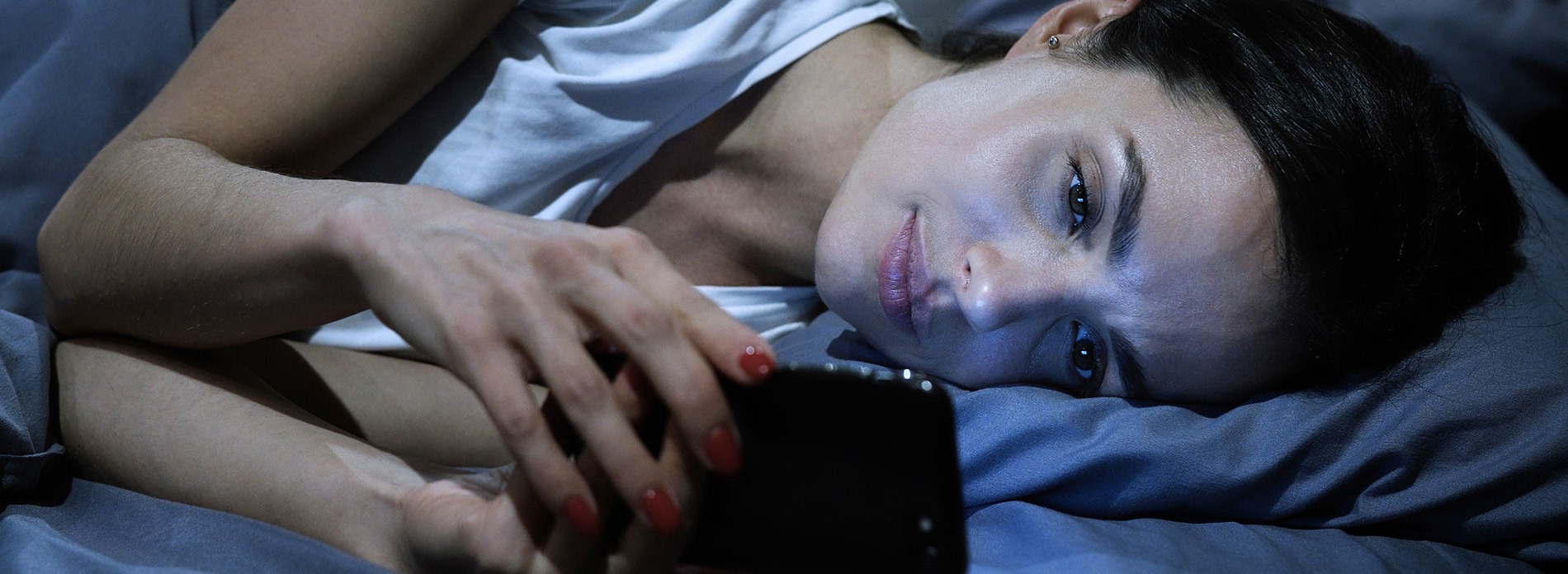Do blue light-blocking glasses improve sleep quality?
You might have heard about people wearing blue light-blocking glasses to improve their sleep. Were you convinced, or is the jury out? We shine a spotlight on blue light blocking-glasses. What are they? Can they improve the quality of your sleep? Or are they an unfounded gimmick?
What is blue light?
Blue light is part of the visible light spectrum and is emitted by the sun, as well as many artificial sources, such smartphones, computer screen, tablets, and LED bulbs. It can influence alertness, hormone production and sleep cycles.
Exposure to natural blue light from the sun during the day can help regulate our internal body clock, improve alertness, and boost energy levels. Artificial sources of blue light, such as LED lighting and electronic devices, can also contribute to alertness and energy.
Discover AXA Health insurance


Cost of health insurance
I'm interested in finding out more about health insurance costs.


Compare health insurance
I'm interested in getting more information to compare health insurance options.
How does blue light impact sleep quality?
Excessive exposure to blue light, especially in the evening, can disrupt your body’s natural circadian rhythm by supressing the production of melatonin – a hormone that regulates sleep. This can lead to sleep problems and disrupt your sleep-wake cycle.
Think of it like this – the sun’s going down, your brain gets the signal it’s melatonin time. But for many of us, it’s time to enjoy some peace and quiet in bed and scroll on our phones. This blue light at bedtime can signal to your brain that it’s not time for the land of nod yet, which blocks melatonin.
Over time, this blue light behaviour can impact how quickly you drift off to sleep, as well as the quality of your sleep.
Do blue light-blocking glasses improve sleep quality?
Also known as blue light-filtering glasses, these specs have lenses that are designed to reduce blue light, while allowing the rest of the light spectrum to get through. However, there’s no clear answer in terms of their effectiveness due to the lack of large, long-term case studies.
The College of Optometrists states: ‘The best scientific evidence currently available does not support the use of blue-blocking spectacle lenses in the general population to improve visual performance, alleviate the symptoms of eye fatigue or visual discomfort, improve sleep quality or conserve macular health.1
While blue light-blocking glasses are effective at reducing the amount of blue light that enter the eyes, there is no current research to suggest that this can improve or protect the health of your eyes.
In a nutshell: There’s no scientifically proven benefit of wearing blue light-blocking glasses for your eye health. But as time goes on, more larger scale research will be able to give us clearer picture on blue light-blocking glasses.
Explore more health myths with our AXA Health Mythbusters campaign.
Reviewed by Dr John Burke

Dr John Burke is our Chief Medical Officer for AXA Health, with over 25 years of experience as a GP. He was educated at Cambridge and Oxford Universities, where he pursued an interest in neuroscience. In his role he steers AXA Health's policy in areas such as evidence-based medicine, value-based commissioning, overdiagnosis and low-value care, service design, supply chain management and regulatory oversight.
References:
- Blue blocking spectacle lenses – The College of Optometrists

